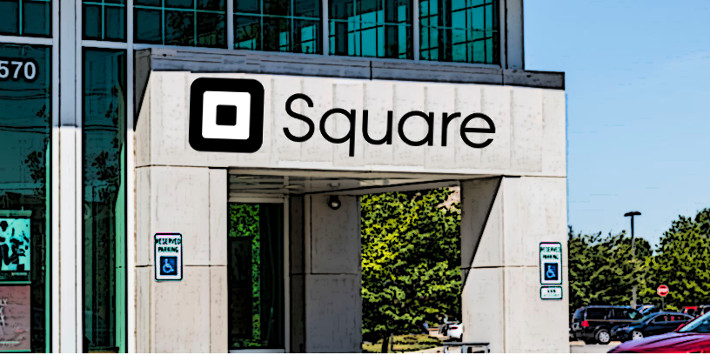Business Lending
Knight Capital’s Intangibles As Reported Through Ready Capital’s Year-End Earnings
March 21, 2020Last year, Ready Capital Corporation (NYSE: RC) acquired small business funding provider Knight Capital.
RC’s year-end earnings provided some additional insight into the state of Knight Capital at the time it was acquired. This included balance sheet figures that recorded $48.4M in assets ($39.5M of which were purchased future receivables) and $31.8M in liabilities.
Among Knight’s intangible assets were a valuation of $880,000 assigned to the Knight Capital trade name, $1.2M assigned to the value of Knight’s broker network, and $3.8M assigned to the company’s internally developed software.
Goodwill of $11.2 million was recognized as the consideration paid exceeded the fair value of the net assets acquired.
View the full year-end financial statements by Ready Capital Corporation here
Square is About to Become a Real Bank
March 18, 2020
Square is on its way to becoming a bank. The payments and online lending company was approved by both the FDIC and the Utah banking regulator this week to create a de novo “industrial” bank. The company has been trying to accomplish this for more than two years. The news means that Square will likely no longer rely on a relationship with Celtic bank to make loans, while also being able to take on deposits.
The FDIC said in an announcement that, “The bank, Square Financial Services, Inc., will originate commercial loans to merchants that process card transactions through Square, Inc.’s payments system.”
Another fintech company, Nelnet, was also granted approval for an industrial loan charter at the same time.
Square and Nelnet’s move to become a bank is similar to the path taken by LendingClub. Rather than become chartered themselves, LendingClub recently agreed to acquire a chartered bank. However, LendingClub still must wait approximately 12 months for the deal to go through the process of regulatory approval.
How Small Business Funders Are Reacting to the Coronavirus
March 17, 2020 In the past week and a half it appears as if six months of panic, reaction, and preparation have taken place. With the coronavirus having transformed from a subconscious worry at the back of our minds to a global pandemic that is leading industries and nations to be reshaped, uncertainty and a lack of information may lead to further confusion and anxiety.
In the past week and a half it appears as if six months of panic, reaction, and preparation have taken place. With the coronavirus having transformed from a subconscious worry at the back of our minds to a global pandemic that is leading industries and nations to be reshaped, uncertainty and a lack of information may lead to further confusion and anxiety.
As such, deBanked reached out to a number of funders within the alternative finance space to gauge how they’re feeling on the pandemic and understand what measures they are taking at this time.
One such company was BFS Capital. With its headquarters in Florida, CEO Mark Ruddock explained that he and his employees are used to preparing for crises. “It’s prime hurricane land. So we have a capability to operate without a single human head in the office. We have 100% capability for all of our team to work remotely regardless of whether they have work laptops or not.”
Communication is at the heart of this ability, with offices in Toronto, Omaha, New York, Chelmsford in the UK, and outsource partners in Guatemala, BFS relies on software like Microsoft Teams and Zoom to ensure smooth contact is maintained between its employees across the world.
And this mindset has recently been further enforced with regards to company-customer relations, Ruddock explained, noting that in that wake of the coronavirus, BFS has amped up its outreach to existing customers.
“Instead of just waiting for active inbound communication from our merchants, we actually now have an active outbound calling program. We’re trying to reach out to many of our merchants and understand how their businesses are doing, understand what sort of support and help they’re looking for. We’re trying to draw from this not only information about the specific merchant, but also information about that merchant’s geography, sector, and so on. And all of that is being fed back into a real-time dashboard internally.”
Beyond BFS, merchant outreach was a trend amongst the companies deBanked talked to. With funders reporting that they have teams trained to discuss future funding options with businesses if their finances suffer from a decrease in customers.
At the same time, some funders have decided to focus their efforts on tightening underwriting and funding channels, applying a conservative approach to which industries and locations will be served.
Velocity Group USA shared an internal memo to its ISOs with deBanked which detailed some instructions to brokers. Among these was the prompt for “our ISO’s to place more focus on essential businesses.” Non-essential businesses being categorized as community and recreation centers; gyms, including yoga, spin, and barre facilities; hair and nail salons and spas; casinos, concert venues, and theaters; bars and liquor stores; sports facilities and golf courses; most retail facilities, including shopping malls.
Placing a limitation upon funding like this has been a hot topic amongst the alternative finance community within recent days. A thread on the online discussion forum DailyFunder featured speculation and arguments over who is and isn’t funding anymore.
With so much of this being hearsay and rumor, deBanked found that asking funders directly whether or not they were funding currently to be the best remedy to this uncertainty. As of the time of publication, deBanked found that LoanMe had suspended funding until April 1 and that 1st Merchant Funding suspended further funding temporarily, with Vice President of Credit Risk Dylan Edwards saying that it would be “completely irresponsible” to continue funding.
In regards to how funders have been dealing with the coronavirus in their immediate surroundings, many, such as RDM’s CEO Reuven Mirlis, have noted that their employees have been offered the option of working from home, while others have made it a mandate to work from home. BlueVine’s CCO Brad Brodigan explained that this decision was part of their Business Continuity Plan and that prior to this they took extra measures so that their office was thoroughly disinfected and that social distancing was practiced within meetings of 5+ people.
Meanwhile Velocity Group USA has brought in Pat Gugliotta, the Commissioner of the business’s local fire department, to help establish contagion prevention protocols, based upon the screening processes practiced in JFK Airport. Explaining that this includes daily interviews with every staff member in the morning which look for trends relating to where they’ve been, who they’ve been in contact with, and how they’re feeling. As well as this, employee vitals are documented, with infrared thermometers being employed to monitor temperatures. “I’m trying to mirror our program to that program because I know the program works,” Gugliotta mentioned in a call.
While this may sound extreme, it must be remembered that this is an unprecedented crisis, meaning most strategies are untested and many funders are open to exploring novel precautions and solutions.
“This is an unprecedented event, which in its own right means you have to look at it differently,” BFS’s Ruddock explained. “I think it’s the sheer scope and speed that we have to cope with here. Scope meaning that this isn’t a hurricane which hits a region for a period of time and causes economic distress, which requires rebuilding, this is something that is international. This is not something that, like a recession, creeps at you over months and weeks and sometimes even signals orders. This is something that is happening with alarming speed. So in that way, these are unprecedented times now.”
This article will continue to be updated with funders who announce and disclose to us changes in their services, so check back to stay updated. Please do reach out if you would like to discuss the status of your company and how the coronavirus is affecting your business.
With New York in a State of Emergency, Its Legislators Rush to Regulate Disclosures in the Commercial Finance Industry
March 16, 2020 On March 7th, Governor Cuomo declared a disaster emergency for New York State. Four and 6 days later respectively, legislators in the state Assembly and Senate introduced commercial financing disclosure bills that would regulate all business-to-business financing transactions including secured loans, factoring, and merchant cash advances. The bills intend to create uniform disclosures for comparison purposes while also placing control of the commercial finance industry under the purview of the superintendent of the New York Department of Financial Services (DFS).
On March 7th, Governor Cuomo declared a disaster emergency for New York State. Four and 6 days later respectively, legislators in the state Assembly and Senate introduced commercial financing disclosure bills that would regulate all business-to-business financing transactions including secured loans, factoring, and merchant cash advances. The bills intend to create uniform disclosures for comparison purposes while also placing control of the commercial finance industry under the purview of the superintendent of the New York Department of Financial Services (DFS).
The bills also state that merchant cash advance companies may be required to prepare funding reports on all of their deals for the DFS to inspect so that the superintendent can analyze the difference between the estimated anticipated APR and the actual retrospective APR that resulted after the merchants delivered all of the receivables to the funder on each deal.
The bills are said to have been in the works for some time, but the timing of their introduction is awkward given the sudden economic situation that is unfolding in the state.
The bills are actually quite lengthy so you can read them yourselves in full here:
Assembly Bill A10118 – Introduced by Kenneth Zebrowski
Senate Bill S05470A – Introduced by Kevin Thomas
OnDeck’s Chief Accounting Officer is Leaving The Company
March 16, 2020On March 9th, OnDeck filed a disclosure with the SEC that their Chief Accounting Officer, Nicholas Sinigaglia, would be leaving the company on May 1st. Sinigaglia was with the company for more than 5 years.
OnDeck said it was doing this as part of changes it had made to streamline its finance organization.
Shares of OnDeck have dropped by more than 50% since that time, likely wrought by the sudden economic disruption.
OnDeck NASCAR Partnership
March 13, 2020 This week OnDeck announced a new partnership with JR Motorsports, sponsoring their no. 8 Chevrolet team. The deal will see OnDeck’s colors brandished on the car driven by Daniel Hemric for two races during the 2020 NASCAR Xfinity Series season. The first of these races will be in Atlanta this weekend, with the second being in Chicago this June.
This week OnDeck announced a new partnership with JR Motorsports, sponsoring their no. 8 Chevrolet team. The deal will see OnDeck’s colors brandished on the car driven by Daniel Hemric for two races during the 2020 NASCAR Xfinity Series season. The first of these races will be in Atlanta this weekend, with the second being in Chicago this June.
“It’s awesome to see a new company like OnDeck come into the world of NASCAR and I couldn’t be happier that they have allowed me to be the one that gets to represent them at both Atlanta and lat this year in Chicago with our JR Motorsports Camaro,” Hemric said in a statement. “It’s great to see them using a platform like NASCAR to help get their messaging across. Hopefully they’ll have a great time and we can come away with a couple of victories.”
 “We are always looking for innovative ways to engage and connect with small business owners all across the US and Canada, and NASCAR is clearly just a huge and growing phenomenon in the US,” OnDeck’s Sr. Vice President of Marketing Shannon Smith told deBanked in a call. “NASCAR fans are 13% more likely than the national average to be small business owners. So given that, this is just a great way to align our brand investment with something that clearly small business owners are really interested in.”
“We are always looking for innovative ways to engage and connect with small business owners all across the US and Canada, and NASCAR is clearly just a huge and growing phenomenon in the US,” OnDeck’s Sr. Vice President of Marketing Shannon Smith told deBanked in a call. “NASCAR fans are 13% more likely than the national average to be small business owners. So given that, this is just a great way to align our brand investment with something that clearly small business owners are really interested in.”
The news comes as OnDeck had an unfortunate week in the stock market, with its value having plummeted by over 40% due to market turbulence.
“Panic Induces Panic”: David Goldin on Small Business Funding and the Coronavirus
March 12, 2020With companies in Australia, Britain, and the United States, David Goldin has weathered storms of various sizes and seriousness over the past two decades. Whether it was the recent wildfires that saw state-sized infernos engulf the Australian countryside, the regulatory upheaval that is Brexit, or the unprecedented shockwaves sent by the 2008 financial crisis, the CEO has seen his fair share of global disruption.
So when deBanked got in touch with Goldin about his perspective on the coronavirus pandemic, how it compares to what he’s seen before, and what funders should do to combat contagion, he was happy to discuss the insights he’s garnered from twenty years in business.
The following Q&A has been lightly edited for clarity and succinctness:
deBanked: Generally speaking, how bad do you think the coronavirus pandemic is going to get?
 “I don’t think anyone knows the outcome. I think what you’re going to see is the industry completely change over the next few days. In the last 48 hours you went from mild cancellations to, today alone, the NBA, NHL, and MLB. And Cuomo just announced in New York that there can be no more than 500 people at events, colleges are shutting down left and right, and schools as well. Basically, we’re heading in the direction of shutting down the entire country at some point.
“I don’t think anyone knows the outcome. I think what you’re going to see is the industry completely change over the next few days. In the last 48 hours you went from mild cancellations to, today alone, the NBA, NHL, and MLB. And Cuomo just announced in New York that there can be no more than 500 people at events, colleges are shutting down left and right, and schools as well. Basically, we’re heading in the direction of shutting down the entire country at some point.
So I think funders have two issues. One is their existing customers, right? And how do you lend in this market? There’s the obvious and the not so obvious, because, for example, a deal that may have been great a few days ago, let’s say there’s a college bar near SUNY Albany, and they just announced this shutting down of schools, that bar may not see any business for who knows how long.
I’m not the CDC, I’m not the WHO, I’m not a medical expert, but I know in life, people are always afraid of the unknown and panic induces panic, but this is just my opinion. So I think once people start getting this virus, which is inevitable, and they recover from it, I think that’s going to offset some of the panic.
I think you’re going to have a couple of more shock factors. I would not be surprised if we learn in the next few weeks that the President of the United States has it.”
And what about our industry specifically?
“I think right now, lenders will say, ‘Well, if I [tighten up], typically what happens in our industry is if a company runs into trouble, it’s usually just that company,’ right? So if they start tightening up, they lose the business.
The entire playing field will be level by Monday or Tuesday of next week, by the latest. I think some of the playbook will be that some funders may take the position to stop funding for the next couple of weeks and look to see what happens because no one knows how bad this is going to get.”
Do you have any advice for funders?
“I think you have to price the risk because I think everyone is foolish to think that the bolts are not going to go off. So you’re either going to have to increase the pricing to the customer or raise the rates to the broker and limit the amount they could charge the customer temporarily for the increased risk your portfolio is now going to take.
I think you need to shorten the term. During the 2008 recession, the industry was at a 1.35 to a 1.37 factor rate, averaging six or seven months. There weren’t too many providers back then going past a year, there really was no such things as a second or third position.
This is a much different world we live in. So I think, unfortunately, some of the platforms that tend to be longer-term players which do one year, two years, three years, even four years, I think they’re going to be in a lot of trouble. Their ships are too far out to sea and I think they’re really going to have to focus on portfolio management and collections.
There’s going to be opportunities in the marketplace for those that don’t take a prudent approach, but I think in the short term people have to shorten their terms, potentially raise pricing for risk, and decrease the amount of capital that they’re taking out of a customer’s gross sales.”
What lessons do you think can be learned from this?
“I think as a platform you have to look at redundancy of capital, and that the time to raise money is when you don’t need it. So I think this could be a lesson for all to perhaps have more than one funding source.
I think brokers are going to really have to diversify. There’s good and bad, I think the approval rates at companies are going to fall through the floor, but I think you’ll get a lot of borrowers over the next few weeks that can typically go to a bank that won’t be able to go to a bank. But you’re going to see a lot of watching and waiting right now. And you’re going to see the industry revert back to where it was a while ago: shorter term deals, pricing in the risk, lower gross sales taken.”
How does this compare to previous crises?
“So I think this one’s a little bit different. It’s affecting everything and your playbook is going to change literally daily. This will be affecting the majority of the major cities. When you’re shutting down things like the MLB, the NBA, the NHL, shutting down colleges and universities, I don’t think this country or the world has ever experienced anything like this for this extended period of time.
Now that doesn’t mean everyone’s going to go out of business, there’ll be a redistribution. For example, if it was a restaurant in midtown Manhattan that relied a lot on people going from work, and these people are now working from home, perhaps their local restaurants or supermarket may see an uptick in business.
I think you’re going to see decisions slowing down and really digging a lot deeper into the underwriting, understanding what the business actually does, how it’s potentially affected.”
What should funders be doing to combat contagion?
“They should be testing a disaster recovery plan to work remotely.
But most importantly it’s really about everyone being healthy, helping their families and their employees. That’s first and foremost.”
Can Amazon and Goldman Sachs Win With SMB Lending?
March 10, 2020 B2B e-commerce dwarfs the value of retail online transactions — by some estimates, those B2B transactions top some $1 trillion per year in the U.S., which compares to about a half billion dollars of revenue for the B2C side. And B2B e-commerce keeps on growing as more companies — especially small- and medium-sized operations — look to online marketplaces and other channels for daily suppliers, and otherwise shift toward fully digital and mobile operations instead of relying on paper invoicing and other analog supply chain processes.
B2B e-commerce dwarfs the value of retail online transactions — by some estimates, those B2B transactions top some $1 trillion per year in the U.S., which compares to about a half billion dollars of revenue for the B2C side. And B2B e-commerce keeps on growing as more companies — especially small- and medium-sized operations — look to online marketplaces and other channels for daily suppliers, and otherwise shift toward fully digital and mobile operations instead of relying on paper invoicing and other analog supply chain processes.
That’s one of the important factors to keep in mind when considering the prospects of Amazon potentially working with Goldman Sachs to offer SMB lending options by adding the investment bank to the Amazon platform. The possibility of such a business offering — pairing up one of the world’s leading retail, delivery and one-button payment operations with the venerable investment bank — was floated early in 2020 and is already casting a shadow across the B2B and lending community. The backing and brand strength of Goldman Sachs could help unleash a new SMB lending force — one that is also fueled by Amazon’s treasure chest of consumer data and Goldman Sachs’ underwriting expertise. But let’s not get ahead of ourselves just yet.
Significant pitfalls come along with the anticipated opportunities. Not only that, but nothing has yet gotten off the ground, at least not officially. Here’s the idea, culled from previous reports and conversations with experts who know the lending space, along with keen observers of retail and Amazon: The e-commerce operator, eager to build a stronger ecosystem around its already robust B2B marketplace and related operations, would team on SMB lending with Goldman Sachs, itself eager to break into new product lines and add some new fat to its margins.
Amazon and Goldman Sachs aren’t saying too much about that idea and did not comment for this story. The rough outlines of the plan appeared in the financial press in February. But it’s no secret that the two companies are indeed looking for new financial products and new consumer segments.
Amazon has built its B2B business into a unit whose growth has recently outpaced its retail side and even its powerhouse Amazon Web Services. As well, Amazon was on track in 2019 to invest some $15 billion in new tools for small- and medium-sized business, according to company documents and officials.
Granted, much of that explosive growth comes about because B2B is relatively new for Amazon, but such growth demonstrates how well Amazon is gaining — and even keeping — new B2B customers. Many of them are attracted to the digital and mobile efficiency of the Amazon platform, to say nothing of the speed of Amazon deliveries as the Seattlebased company continues to pour massive investment into trucks, warehouses, fulfillment robotics and other logistical areas. Just consider this data point: SMB thirdparty sellers tend to make up more than 55 percent of sales in Amazon stores, according to company financial documents.
Loans offered by Amazon and Goldman Sachs would help those Amazon customers fund purchases of supplies without having to seek out another creditor — or leave the Amazon online and mobile ecosystem.
“If the SMB is already using Amazon to sell and distribute their product, it makes sense they would also accept a loan from them,” Julie Stitzel, the vice president, Center for Capital Markets Competitiveness, U.S. Chamber of Commerce, told deBanked. “Amazon is already a trusted partner of their business operations and integrating the financial component is convenient—it saves time because you don’t have to deal with two separate entities.”
The move also would make sense, at least on paper, for Goldman Sachs, Joe Ganzelli, Sr., a Senior Director for Cornerstone Advisors, told deBanked. “They are not in the small business space, and this is a space that, frankly, would be challenging for them to compete in without a partner,” he said. Additionally, this potential SMB lending partnership with Amazon could come as Goldman Sachs executives seek to meet their goals of diversifying their business in 2020 and beyond, according to Ganzelli, previous comments from those executives and other reports. “Small business is such a big driver of our economy,” he said.
Those are among the main opportunities. But just because Goldman Sachs and Amazon are involved doesn’t mean the SMB lending offering would succeed. For instance, both companies have had bouts of recent or high profile failure. Who, for instance, has forgotten the massive stumbles of Goldman Sachs leading up to the 2008 financial crash? And while Amazon has gained ground with fashion and apparel, the company has had a relatively hard slog selling trendy clothes to consumers. Could SMB lending become another pothole for those two companies?
Well, certain obstacles would have to be overcome. For Goldman, the learning curve to gain expertise on SMB lending would be severe, according to Ganzelli — even though all that Amazon customer data that’s already been acquired by the e-commerce giant would certainly help with that education. Still, “anytime you enter a new niche, it’s challenging,” he said. As for Amazon, the main — and perhaps only real downside visible at this point — comes from the commitment that comes with SMB lending. “Amazon will be contractually tied to this arrangement if it’s not a success or does not meet growth objectives,” he said.
All that said, this stands as an appealing time for these two heavyweights of the U.S. economy to see if they can make good money via SMB nonbank lending. “While the majority of small and medium size business lending comes from banks, alternative lending products are an increasingly popular option for SMBs,” said Stitzel. “Allowing you to work with one entity to streamline business operations and mitigate economic volatility in a cost effective way, frees a SMB owner to focus more on building their business and less on administration. Companies like Square and Intuit are already successfully doing this for SMBs using their platforms.”
That’s not the only wind behind the sales of this growing trend of alternative SMB lending, of course. Millennials still might take all kinds of scapegoating heat for various consumer, cultural or economic trends — unfairly or not — but the fact is that those younger people are growing up, and starting to take more responsibility for B2B operations, including supply chain and invoicing tasks. As that happens, millennials are playing a growing force in anchoring more B2B companies to mobile and digital platforms. In general, millennials prefer one-stop shopping with trusted outlets. That would certainly benefit Amazon and Goldman Sachs in any SMB lending offering they launch — as that is now helping such alternative lending offerings as Kabbage and some of the newer PayPal products.
“Millennials are the folks who grew up with the expectation of seamless digital experiences,” Ganzelli said. Those B2B consumers are willing to pay the often “hefty” premiums that come with such experiences, too, he said. “The delivery experience and the speed-to-close just blows banks out of the water.”





























